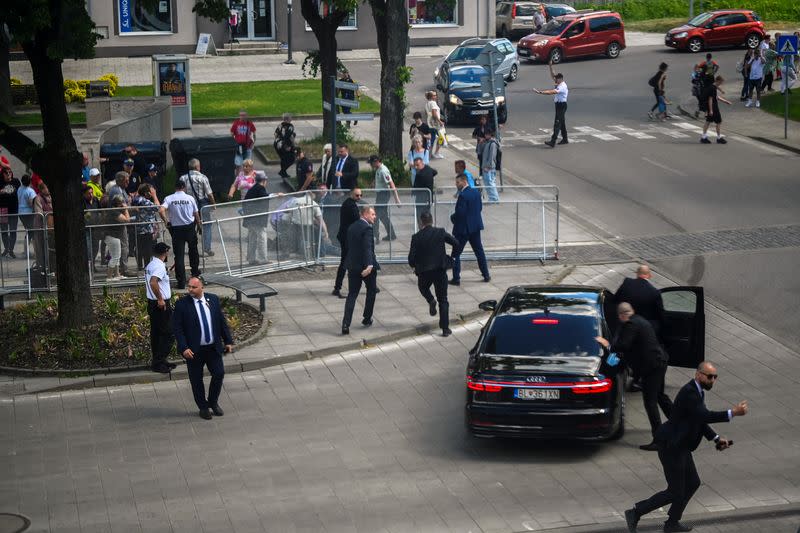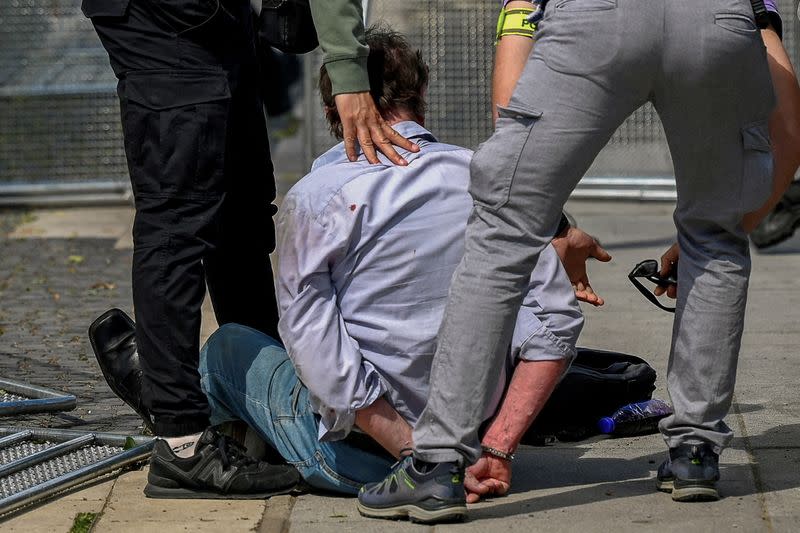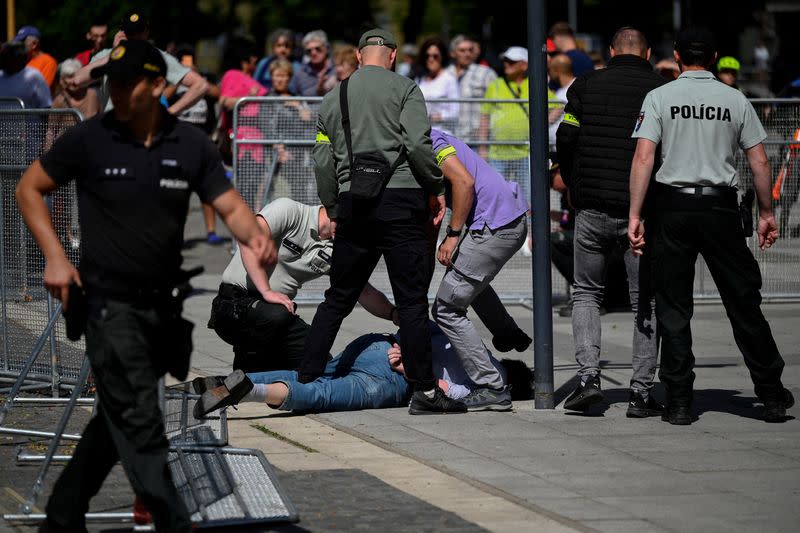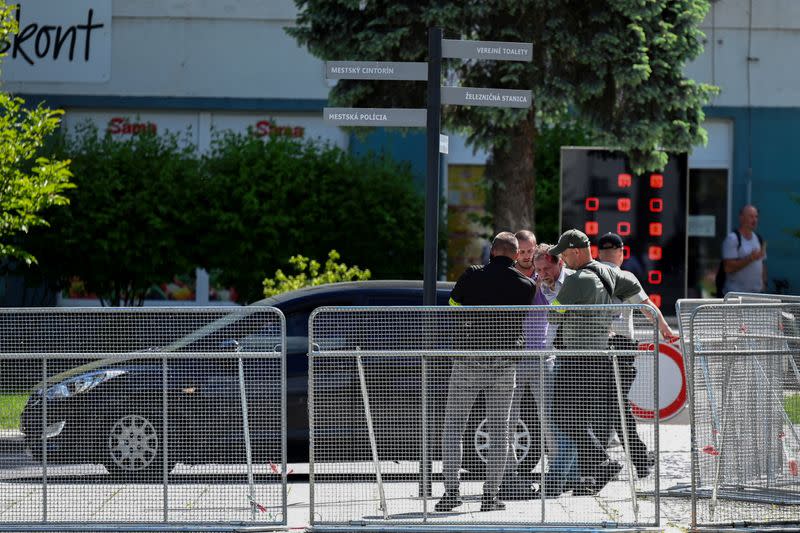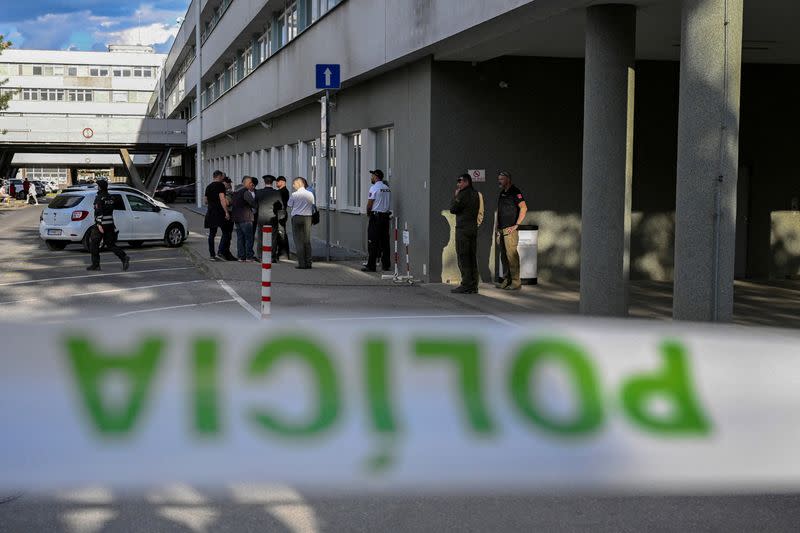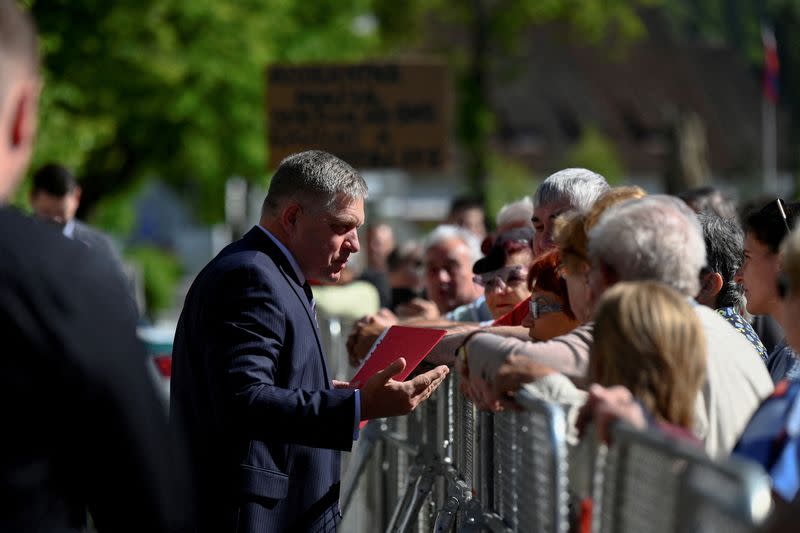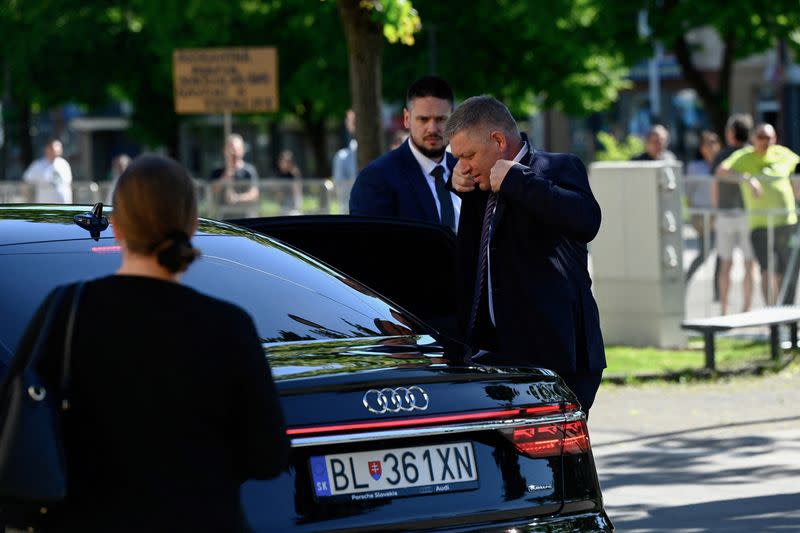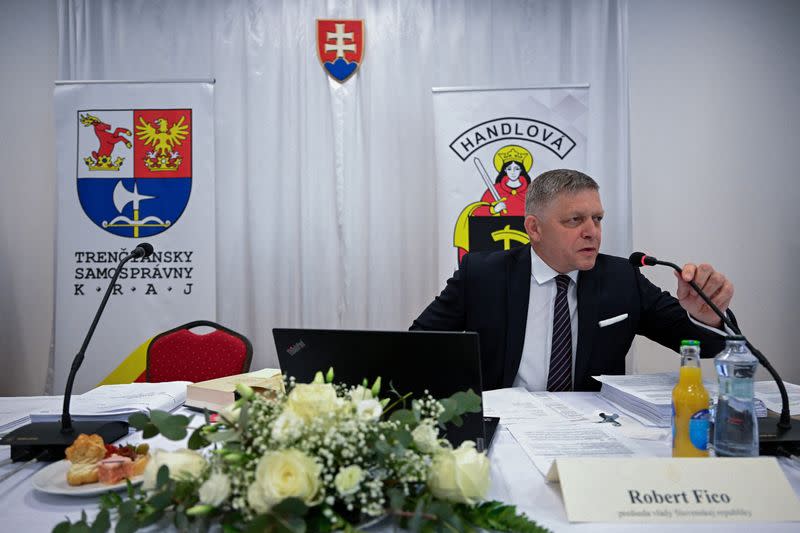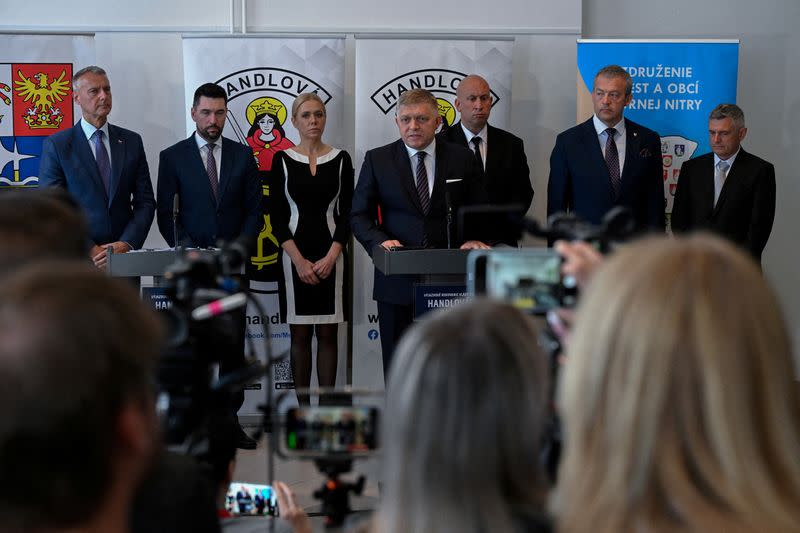The Slovak assassination attempt photo that nearly got away
- Oops!Something went wrong.Please try again later.
(Reuters) - It's every amateur photographer's nightmare: you spy a once-in-a-lifetime picture, and you forget to change your camera settings.
But it can happen to a seasoned professional, too.
Reuters stringer Radovan Stoklasa was one of the few people left in a makeshift press centre in the Slovakian town of Handlova about 40 minutes after Prime Minister Robert Fico had briefed reporters on a cabinet meeting that had just ended.
The sound of applause told him Fico was coming out onto the square below, but then he heard a noise that resembled firecrackers. Instinctively, he grabbed two cameras and pointed one out of the window, pressing the shutter release.
Fico, Slovakia's dominant figure for two decades, had been shot and critically wounded, and security men were already bundling him into his limousine.
"I had the wrong exposure, because the camera was set up for indoors," Stoklasa said. "My first five pictures were just white - nothing."
It was the first attempted assassination of a European political leader for more than 20 years, at a time of hardship, rising nationalism, and conflict in Slovakia's neighbour, Ukraine.
After four decades working in less-than-glamorous provincial Slovakia, Stoklasa might have seen his big moment slip away right then, but he adjusted his settings in a split second - allowing him to get one last, successful frame.
The car door had already closed on Fico and the chauffeur was getting in to drive away, but that image, with security men scattering in all directions, would still be enough.
Stoklasa took a few seconds to call the bureau to tell reporters what he had seen, then ran down to the street.
Then he scurried round the square and captured another key moment: police arresting the suspect, handcuffed on the ground.
Time to file the pictures.
Stoklasa was alone with the images, except for one colleague working for a Slovakian economic newspaper.
But he was on the street and his laptop, which he would normally use to rapidly edit and transmit, was still in the press centre - which was now sealed off by police.
"Then I remembered that one of my cameras can send pictures to my phone ... and I connected to my hotspot and sent some to Reuters," he said. His photos would lead the world's websites and front pages.
(Reporting by Radovan Stoklasa; Writing by Kevin Liffey; Editing by Rosalba O'Brien)
